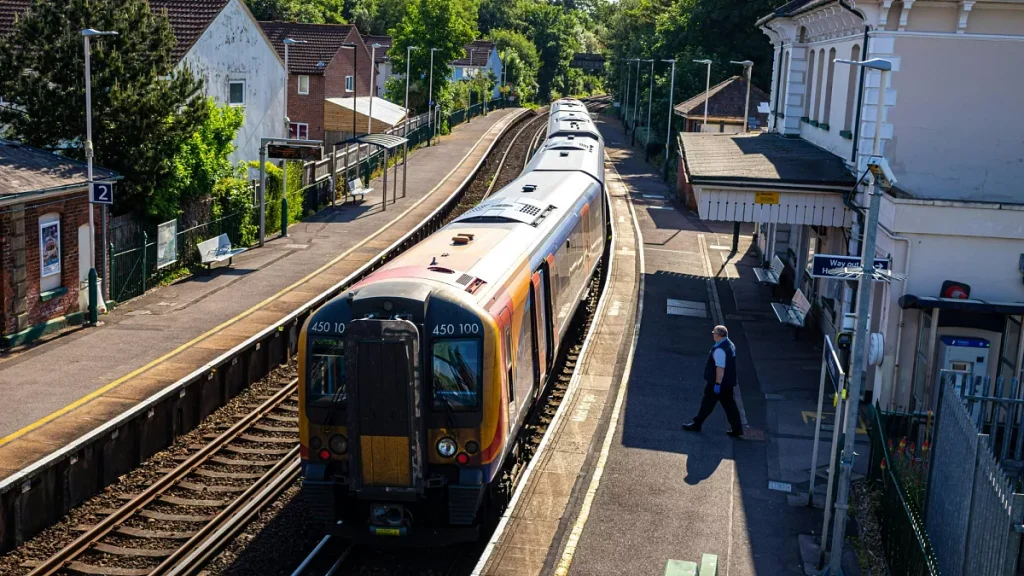New Ticketless Rail System: UK Trials GPS-Based Train Fare Calculation
The United Kingdom is embracing a technological shift in how passengers pay for train travel with the introduction of a GPS-based ticketless system. Currently being tested on Northern train services between Harrogate and Leeds, this innovative approach uses passengers’ mobile phones to track journeys and automatically calculate the most cost-effective fare. Following a successful trial by East Midlands Railway on routes connecting Derby, Leicester, and Nottingham in September, the system represents a significant step toward modernizing Britain’s sometimes confusing rail fare structure. The concept isn’t entirely new to Europe—Denmark, the Netherlands, and Switzerland have already implemented similar systems with positive results, suggesting the UK is catching up with continental innovations in public transport.
The passenger experience with this new system is remarkably straightforward. Travelers simply download an app that uses location data to identify their starting station and prompts them to “check in” to begin their journey. When reaching their destination, passengers tap “end journey” on the app, and within minutes, they receive a message confirming the cost—which authorities guarantee will be the lowest possible fare for that particular trip. For verification purposes during travel, the app generates a barcode that can be scanned by ticket inspectors or at station barriers. To encourage participation in this pilot program, travelers receive £15 (approximately €17) in free credit. The trial’s scope is set to expand in the coming weeks to include journeys between Sheffield and Doncaster, as well as Sheffield and Barnsley, allowing more passengers to experience this potentially transformative approach to rail travel.
Looking at international examples provides insight into how such systems function at scale. Denmark’s Rejsekort app operates as an electronic tap-in, tap-out ticket system across the country’s public transport network. Passengers scan their smartphones at the beginning and end of each journey—whether boarding a train platform or a bus—and the system uses GPS to calculate the appropriate fare automatically. In the Netherlands, travelers with a personal OV-chipkaart, an NS Flex subscription, and the NS Lab app can utilize “train travel with GPS” tracking, eliminating the need to physically check in and out with their transport cards. Switzerland offers a similar convenience through the SBB app’s EasyRide feature, where passengers check in and out using the app, which tracks their location to determine the final fare—always calculating the lowest possible price for the journey taken.
While these systems offer unprecedented convenience, they inevitably raise questions about privacy and data protection. Denmark’s experience illustrates the evolving nature of these concerns; initially, the Rejsekort app faced criticism from the Danish Data Protection Agency because it required iPhone users to grant perpetual access to their location data, even when the app wasn’t actively being used. Following these concerns, adjustments were made to allow travelers to select the “while using the app” setting for sharing location data, giving users more control over their personal information. This demonstrates how privacy considerations can be addressed through thoughtful system design and responsive policy adjustments, creating a balance between convenience and data protection.
The Netherlands has taken a particularly transparent approach to addressing privacy concerns with its NS Lab app. The system begins collecting location data only when travelers enter a station’s “geofence”—a virtual boundary encompassing stations and train tracks throughout the country. Importantly, the GPS tracking feature automatically deactivates when the app determines that a passenger has left the station without boarding a train, or after completing a journey. To further protect user privacy, personal data is processed for no more than 20 minutes after leaving the geofenced area. Perhaps most reassuringly, if someone passes by or stays within a station’s geofence without activating the app or the GPS tracking feature, no personal data is processed at all—ensuring that tracking only occurs with explicit consent and active participation.
The UK’s move toward GPS-based ticketing represents a significant evolution in how we interact with public transportation systems. By simplifying the payment process and ensuring passengers always get the best fare, this technology has the potential to make rail travel more accessible and less frustrating. The expansion of the trial to additional routes suggests growing confidence in the system’s effectiveness and reliability. As with any technology that collects location data, finding the right balance between convenience and privacy protection remains crucial. If the UK can learn from the experiences of European counterparts who have already implemented similar systems, this approach could transform the passenger experience while addressing legitimate privacy concerns. With careful implementation and transparent policies, GPS-based ticketing may soon become a standard feature of Britain’s rail network, bringing the country’s storied railway system firmly into the digital age.


